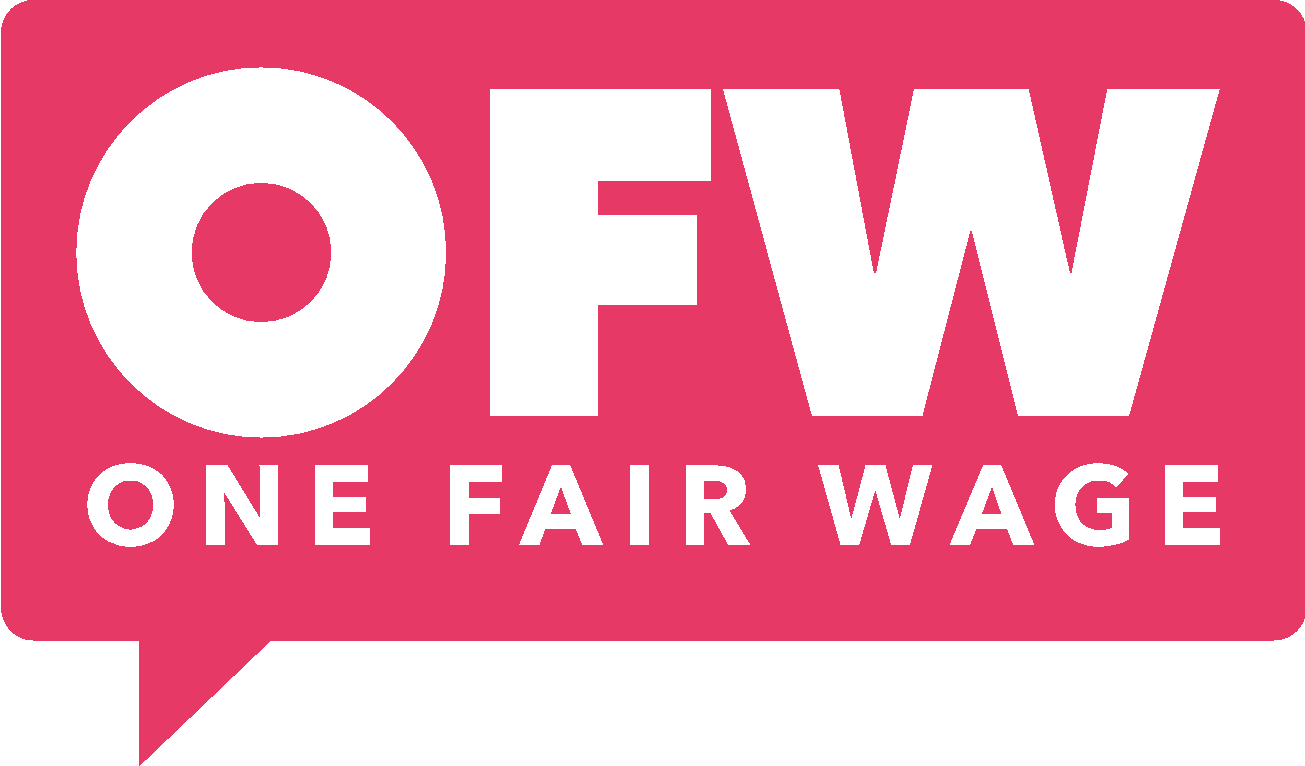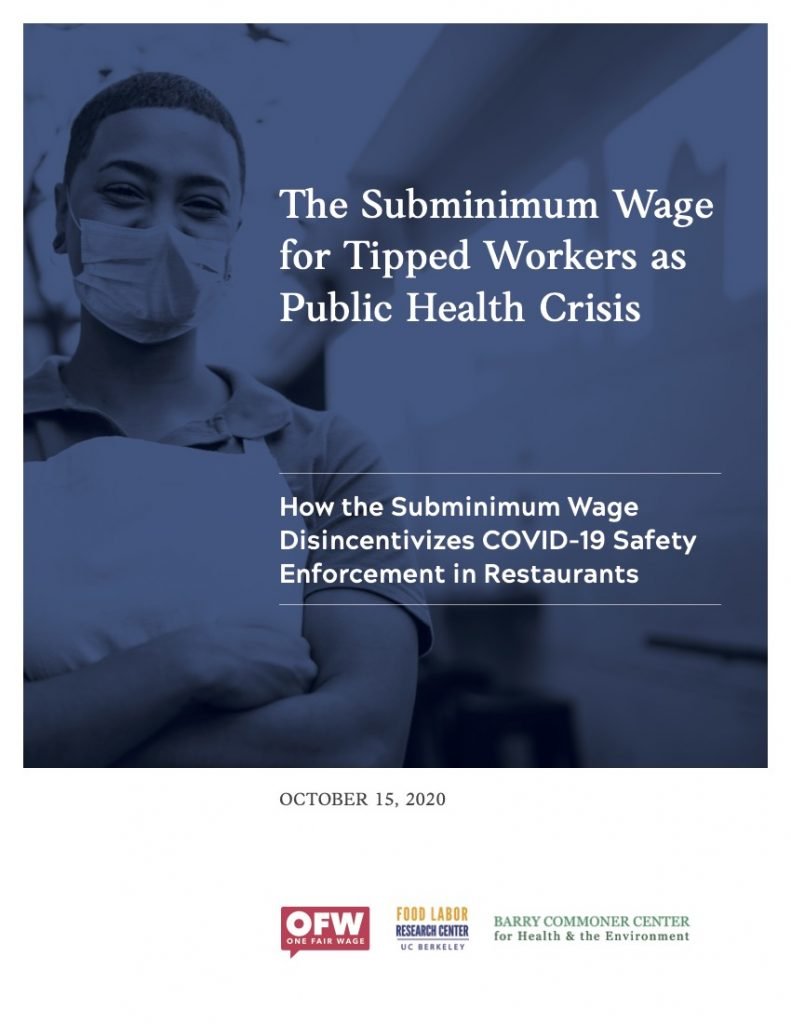The Subminimum Wage for Tipped Workers as Public Health Crisis
How the Subminimum Wage Disincentivizes COVID-19 Safety Enforcement in MA Restaurants
Thanks to strong state and local leadership, Massachusetts was able to significantly reduce the spread of the COVID-19 virus earlier this summer. However, there is a severe new threat to the potential resurgence of the virus this fall and winter. The Centers for Disease Control reported that adults testing positive for SARS-coV-2 were approximately twice as likely to have eaten at a restaurant than were those with negative results. Restaurant or café dining was found as the only significant recent exposure clearly related to COVID-19 risk.
To prevent the spread of the virus, restaurant workers will be the first line of defense in enforcing state public health mandates. However, in Massachusetts, tipped service professionals earn a subminimum wage that forces workers to obtain a substantial portion of their income from customer tips. After months of unemployment, severe economic hardship, and a trend in decreased overall tipping, workers will be forced to enforce public health measures upon the very people who pay their wages. This disincentive stands to pose grave risk not only to the more than 300,000 restaurant workers around Massachusetts but also to the broader public.

